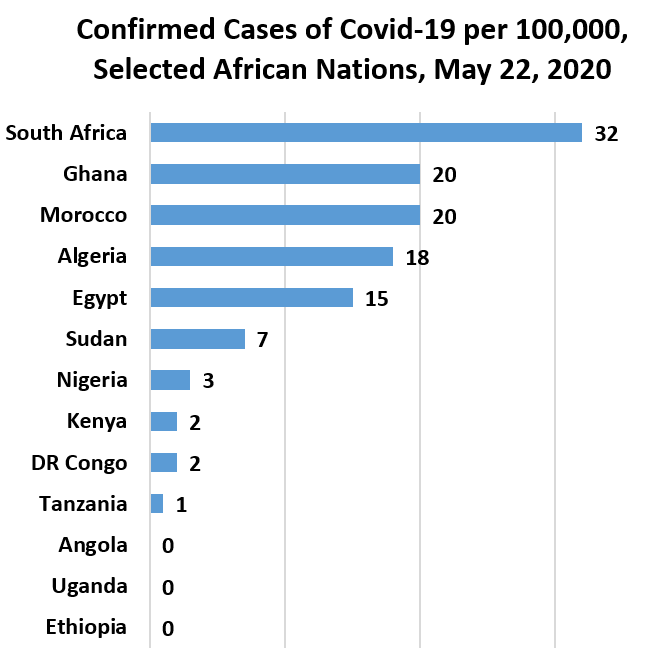Hope for Africa During Covid-19 Pandemic
NEW HAVEN: The mightiest of nations have fallen victim to Covid-19, and many predict problems for less developed nations. Yet Africa may surprise the world in managing this pandemic when the international community cannot step up to help.
Granted, there are challenges and unknowns. Arguing for rapid development of a vaccine, philanthropist Melinda Gates describes the challenges in the developing world, including lack of access to water to practice handwashing, the inability to practice social distancing in dense townships and slums, and the difficulties of imposed lockdowns as people need to work and pick up food on a daily basis. Africa reports more than 100,000 cases in all, with more than 3,000 deaths. Of 54 countries, 12 report more than 2,000 cases – including South Africa, Egypt and Algeria. Gates suggests that low case numbers are linked to lower rates of testing, and researchers question if the disease is less active in places with warmer temperatures. In Africa, some of the nations worst hit have posted relatively lower temperatures. Covid-19’s fatality rate is higher among the elderly, and the median age in Africa is just under 20.
 Comparisons: African nations manage the pandemic; testing varies widely within and among nations (Source: WorldoMeters)
Comparisons: African nations manage the pandemic; testing varies widely within and among nations (Source: WorldoMeters)
Still, Africa may be resilient – and the case of Ghana debunks suggestions that Africa cannot take care of herself during these trying times. Ghana has recorded more than 6,400 cases with about 30 deaths and 200,000 tests conducted so far. Rural clinics use drones, carrying samples to urban testing centers, reducing delivery time to about 30 minutes rather than hours required by car. The Zipline fleet in Ghana has the capacity to transport 15,000 tests from 300 flights in a day, reports Time, and drone technology speeds identification of the infected and contact tracing while also helping deliver medical supplies.
Ghana also closed its international borders as of mid-March. Kotoka International Airport placed returning citizens and residents under a strict two-week quarantine for observation and testing. The nation’s two major cities imposed a partial lockdown for three weeks to ensure extensive contact tracing and testing. The World Health Organization lauded Ghana for these moves.
Other African nations took similar steps, imposing complete or partial lockdowns as well as contact tracing. Reports suggest the lockdowns increased social interactions among family members and improved daily life. Some African countries followed developed countries in closing their borders indefinitely. Many increase testing, enforce social distancing and require face masks.
Countries also stepped up cooperation – with Rwanda, for example, declaring it could provide medical supplies and ventilators, some supplied by China, for others in need of such critical equipment. South Africa, Rwanda, Senegal and Ghana also report adequate supplies of test kits, again many supplied by China and the Africa Centers for Disease Control and Prevention.